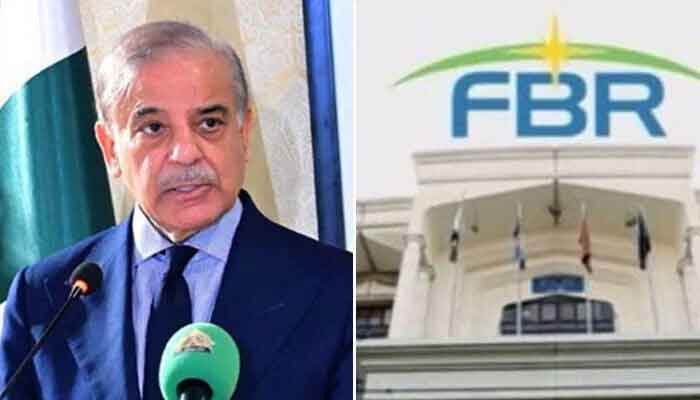The recent actions taken by the Prime Minister have sent shockwaves through the Federal Board of Revenue (FBR), triggering anxiety among officers and officials amid talks of impending transfers and reassignments across various offices. The Prime Minister’s comments regarding the placement of twelve key officers in the administrative pool to assist in combating tax evasion and smuggling have exacerbated tensions within the organization.
Reports indicate a palpable sense of panic within the FBR, with discussions revolving around the potential designation of officers as Officers on Special Duty (OSD) and the transfer of senior officials to different offices. Sources reveal that the initial list prepared in the Specialized Institutional Framework Cell (SIFC) has expanded significantly, now encompassing hundreds of officers, including many junior staff members.
The inclusion of officers of varying ranks and reputations in the list has stirred controversy within the FBR. Officers deemed to possess a commendable reputation have been categorized as A(A) and are slated for placement in key positions of responsibility. Conversely, officers categorized as C are earmarked for placement in a surplus pool pending further investigation into their conduct. Those falling within the B category will be assigned to non-critical roles and subjected to heightened scrutiny.
In response to the Prime Minister’s actions, Jang reached out to several FBR officials, all of whom lauded the Prime Minister’s intervention as a necessary and commendable step in the fight against corruption and tax evasion. The unanimous support from FBR officials underscores the gravity of the situation and the widespread acknowledgment of the need for decisive action to address systemic issues within the organization.
The Prime Minister’s stance on combatting corruption and tax evasion is reflected in the swift and comprehensive measures undertaken by the FBR. By identifying and categorizing officers based on their performance and integrity, the FBR aims to streamline operations and foster accountability within its ranks. The designation of officers to key positions underscores the government’s commitment to promoting transparency and efficiency in tax administration.
However, the unfolding developments within the FBR have raised concerns among stakeholders about the potential impact on organizational morale and effectiveness. The atmosphere of uncertainty stemming from impending transfers and investigations could potentially undermine productivity and erode trust within the institution.
Moving forward, it is imperative for the FBR to ensure transparency and fairness in its actions, prioritizing meritocracy and accountability at all levels. The effective implementation of measures aimed at combating corruption and enhancing tax compliance requires a concerted effort from all stakeholders, including government officials, employees, and the public.
The Prime Minister’s recent directives have sparked a wave of apprehension and anticipation within the FBR, signaling a renewed focus on combating tax evasion and corruption. While the actions taken are viewed as a positive step towards reforming the tax administration system, the true test lies in the effective implementation and enforcement of these measures. As the FBR navigates through these challenging times, it must remain steadfast in its commitment to upholding the principles of integrity, transparency, and accountability.



